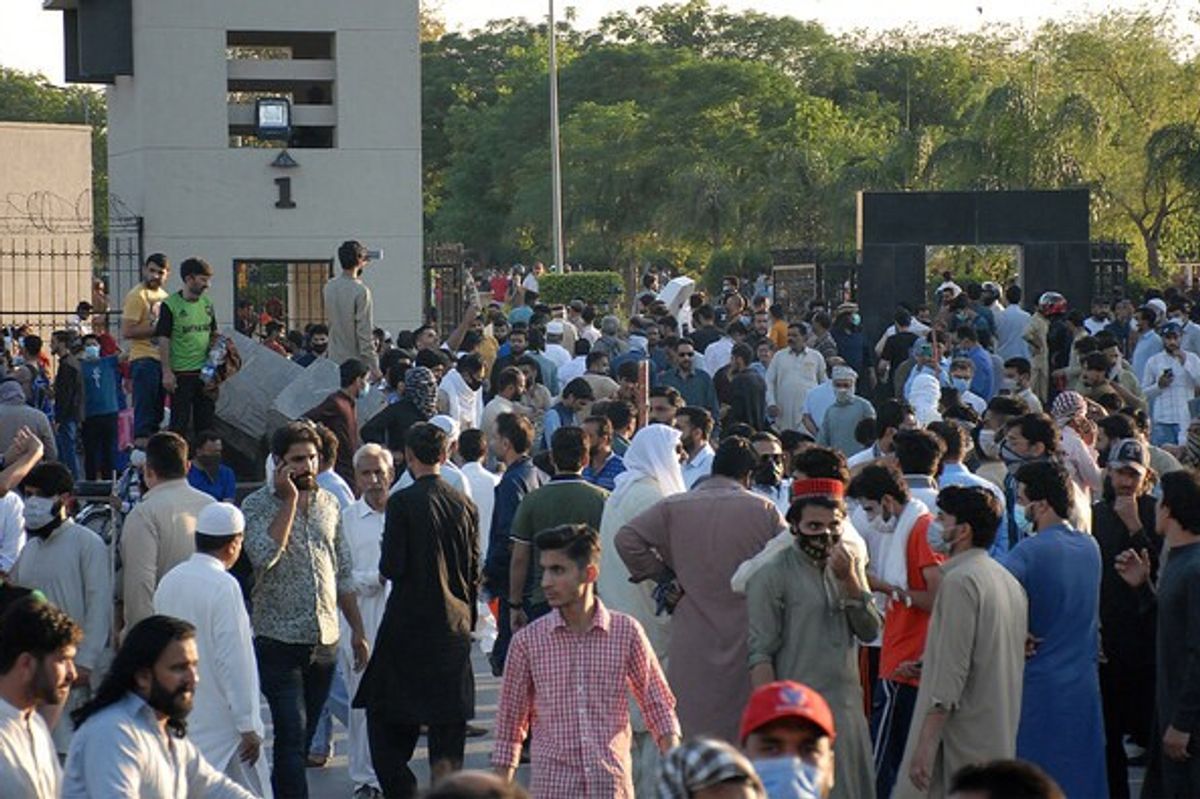Pakistan Supreme Court questions legality of civilian trials in military courts
Hundreds of opposition PTI party workers were arrested and tried in military courts

Aamir Abbasi
Editor, Islamabad
Aamir; a journalist with 15 years of experience, working in Newspaper, TV and Digital Media. Worked in Field, covered Big Legal Constitutional and Political Events in Pakistan since 2009 with Pakistan’s Top Media Organizations. Graduate of Quaid I Azam University Islamabad.

Pakistan's Supreme Court questioned on Tuesday the legality of civilian trials in military courts, a hot-button issue deepening political divides across the country.
Defense Ministry counsel Khawaja Haris argued before a constitutional bench led by Justice Aminuddin Khan, which scrutinized the scope of the Army Act, the law enabling military courts to try civilians accused of terrorism-related offenses.
“The Army Act is not limited to armed forces personnel; it includes other categories as well,” Haris said, in response to Justice Jamal Khan Mandokhail's query about the Act's reach.
Justice Mandokhail raised concerns about the executive acting as a judge in cases against itself. “The Constitution explicitly states that the executive cannot perform judicial functions,” he said. “In cases involving military courts, how can the executive bypass legal forums and serve as a judge?”
Haris acknowledged the validity of the question but argued that the Army Act provides a framework for civilian trials under specific circumstances.
Justice Mandokhail also emphasized the constitutional distinction between military discipline and criminal matters, asking, “Can criminal cases fall under the purview of Article 8(3), which pertains to the discipline and performance of the armed forces?”
Justice Muhammad Ali Mazhar added clarity, noting that the Army Act applies only when civilians commit offenses explicitly listed under it. “However, merely standing near a checkpoint will not lead to a trial,” he said.
Justice Musarrat Hilali expressed concern over the authority of military courts, asking, “Can the trial of civilians by military courts be justified?”
The debate continued with Justice Mandokhail posing a hypothetical scenario: “If a civilian approaches a military checkpoint, does this constitute interference with the duties of the armed forces?”
Allegations of unfair treatment
Political commentator Hafeezullah Niazi, whose son Hassaan Niazi — a nephew of opposition leader Imran Khan — was convicted by a military court, raised concerns about the treatment of those sentenced.
“Convicted individuals have been moved to regular prisons but are denied the rights granted to other prisoners,” Niazi claimed, adding that the lack of transparency in verdicts was troubling.
The Supreme Court directed the government of Punjab province to submit a detailed report on the status of individuals convicted in connection with the May 9, 2023, riots. On that day, supporters of Khan attacked military installations to demand his release from jail, leading to hundreds being arrested and tried in military courts.
The army later pardoned 19 convicts involved in the riots as part of what observers called an olive branch to Khan.
The hearing was adjourned until Wednesday.







Comments
See what people are discussing